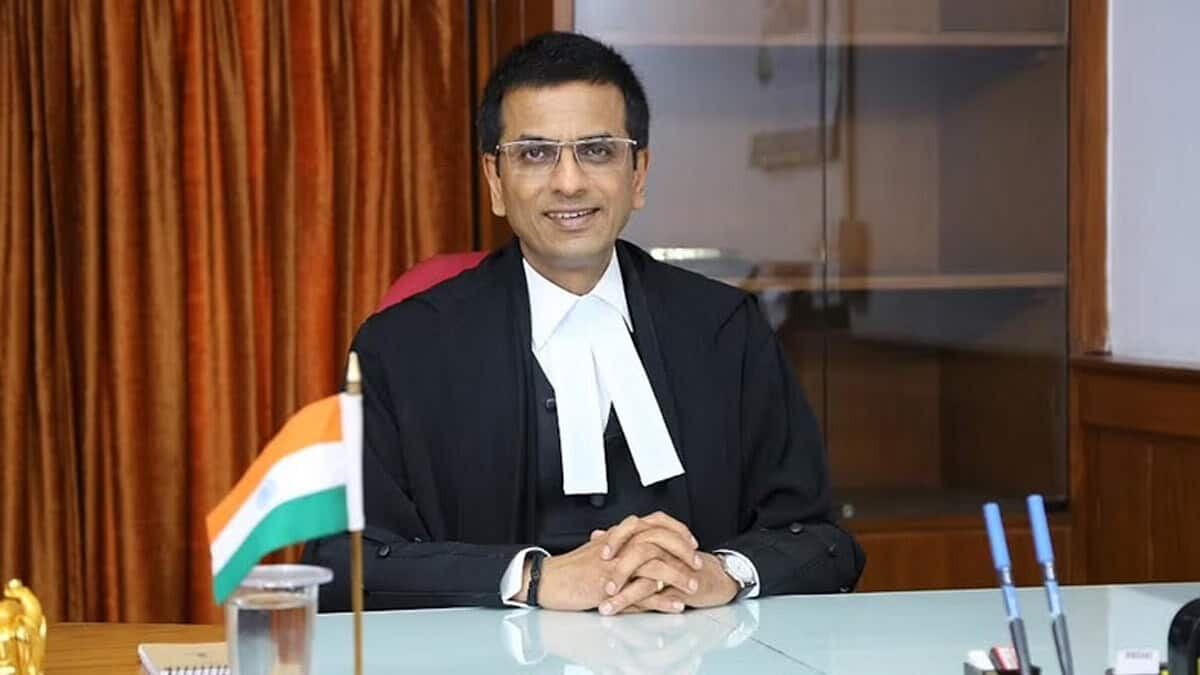
CJI Chandrachud's last day: A look at his landmark rulings
What's the story
Chief Justice of India (CJI) DY Chandrachud will retire on November 10, 2024, with Friday (November 8) being his last working day. His successor, Justice Sanjiv Khanna, will take over on November 11.
Chandrachud took office as CJI on November 9, 2022, and has been a Supreme Court judge since 2016.
He is the son of Yeshwant Vishnu Chandrachud, who is the longest-serving CJI in India's history.
During his tenure, CJI Chandrachud has been a part of several landmark rulings.
Key verdicts
Landmark rulings under CJI Chandrachud's tenure
In February 2024, he headed a five-judge Constitution Bench that ruled against the Union government's electoral bond scheme for political funding.
"Electoral bonds scheme is violative of Article 19(1)(a) and unconstitutional. Amendment to Companies Act are unconstitutional," Chandrachud said in the verdict.
In another big ruling, on November 5, 2024, a nine-judge bench ruled that not all private property can be deemed "material resource of the community" for redistribution under Article 39(b) of the Constitution.
Privacy ruling
Upholding right to privacy and personal liberty
In August 2017, a nine-judge bench also unanimously ruled the right to privacy is protected under Article 21 as an intrinsic part of the right to life and personal liberty.
The judgment overruled an Emergency-era decision of April 28, 1976.
In May 2023, a five-judge constitution bench headed by CJI Chandrachud ruled that Delhi's legislature has control over bureaucrats in administration except in areas outside its legislative powers.
Personal rights
Landmark rulings on personal liberty and equality
Notably, in April 2018, Justice Chandrachud was part of a bench which upheld the right to marry a person of one's choice as integral to Article 21, setting aside a Kerala High Court order annulling Hadiya's marriage.
In August 2018, a five-judge Constitution Bench struck down IPC Section 377 to decriminalize homosexuality.
He was also on the bench that granted bail to Arnab Goswami in an abetment to suicide case in 2020.
Gender equality
Lifting ban on women in Sabarimala, decriminalizing adultery
In September 2018, he was on the bench which lifted the ban on women aged 10-50 from entering Kerala's Sabarimala temple.
That month, he also contributed to striking down adultery as a crime under IPC Section 497, citing violations of Articles 14, 15, and 21.
Justice Chandrachud was also a part of the bench that delivered a unanimous verdict in November 2019 on the Ram Mandir case, which gave land for both a Ram temple and a mosque in Ayodhya.